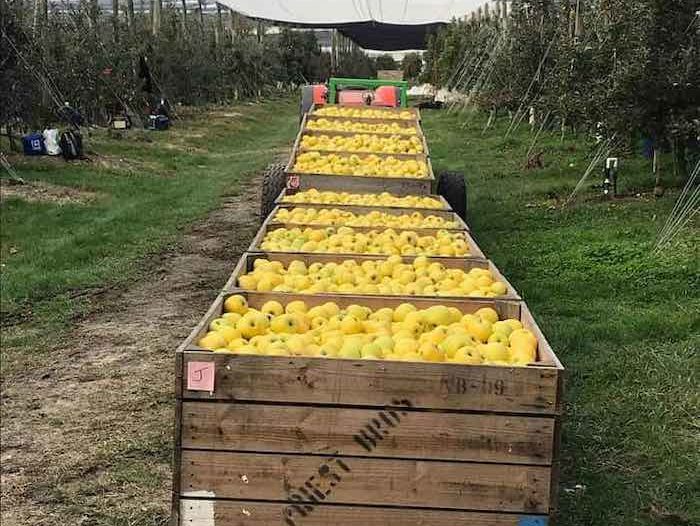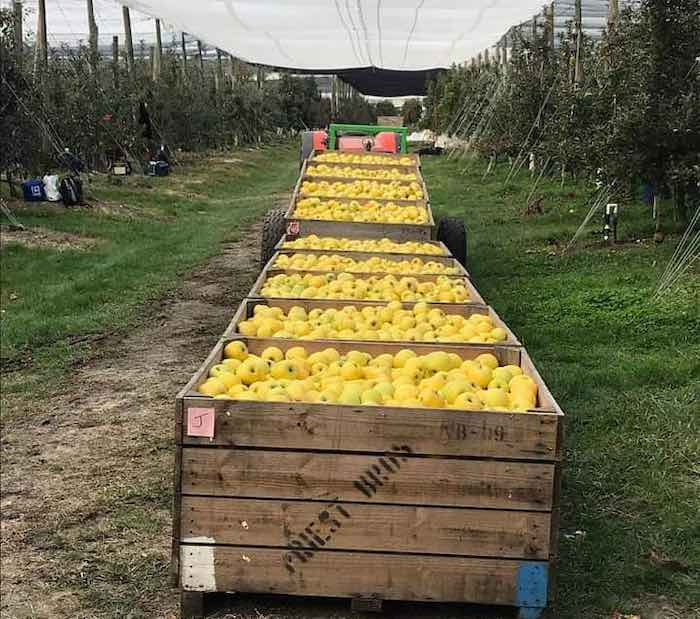
A Victorian apple farmer has tapped commercial-scale battery storage – in this case, a 20kW/80kWh vanadium redox flow battery system – to maximise its solar self-consumption and further reign in costs.
ASX-listed company Australian Vanadium Limited said on Wednesday that its battery subsidiary, VSUN Energy, had sold a VRFB storage system to family-owned apple growing business, Priest Bros.
VSUN, in collaboration with renewable systems provider Profit Share Power, said it would install the battery alongside an existing 60kW solar array at the orchards in Packenham, and add a further 100kW of new PV generation.
AVL said the Priest Bros goal was to reduce its energy emissions at the orchards and to provide a reliable and renewable source of power to the site, particularly the irrigation system and packing sheds.
The battery system will provide a minimum of four hours of stored solar with its designed configuration and increase the onsite renewable generation and consumption, far in excess of what would be capable with a standalone solar array, AVL said.
“We and many of our partners see the integration of VRFBs with generation systems as being the building blocks of many renewable energy projects about to be rolled out, where businesses decide that they want a long life, low risk source of renewable and uninterrupted power,” said AVL’s managing director Vincent Algar.
Shane Priest of Priest Bros said his family was particularly drawn to the vanadium flow battery technology due to the lack of flammability, the number of hours of energy it could provide, and its long operating life.
“Being a hard working business, we need equipment that can work hard for us and when you see the ability of the VRFB storage technology to handle rapid and frequent charge/discharge cycling with no impact on the battery life, well it was a no brainer to choose that technology,” he said.
As we have noted before on One Step, some of the strengths of vanadium redox flow battery technology are its 100 per cent depth of discharge, lack of performance degradation over time, and the ability to re-use the non-flammable vanadium electrolyte at the end of the battery’s life.
The manufacturer of this particular system, Avalon Battery, has recently inked a deal with South African vanadium producer, Bushveld Minerals, to provide a leasing option for vanadium electrolyte, thus cutting costs and providing options for electrolyte disposal in the future.
As for VSUN, the vanadium redox flow battery storage offshoot of mining group Australian Vanadium has been chipping away at the Australian residential and commercial/industrial storage markets for a few years now.
The company previously used the CellCube technology of Austrian outfit Gildemeister, and in 2016 installed a 100kWh unit alongside a 15kW solar PV system at a Western Australian farm near Busselton.

Sophie is editor of One Step Off The Grid and editor of its sister site, Renew Economy. Sophie has been writing about clean energy for more than a decade.

